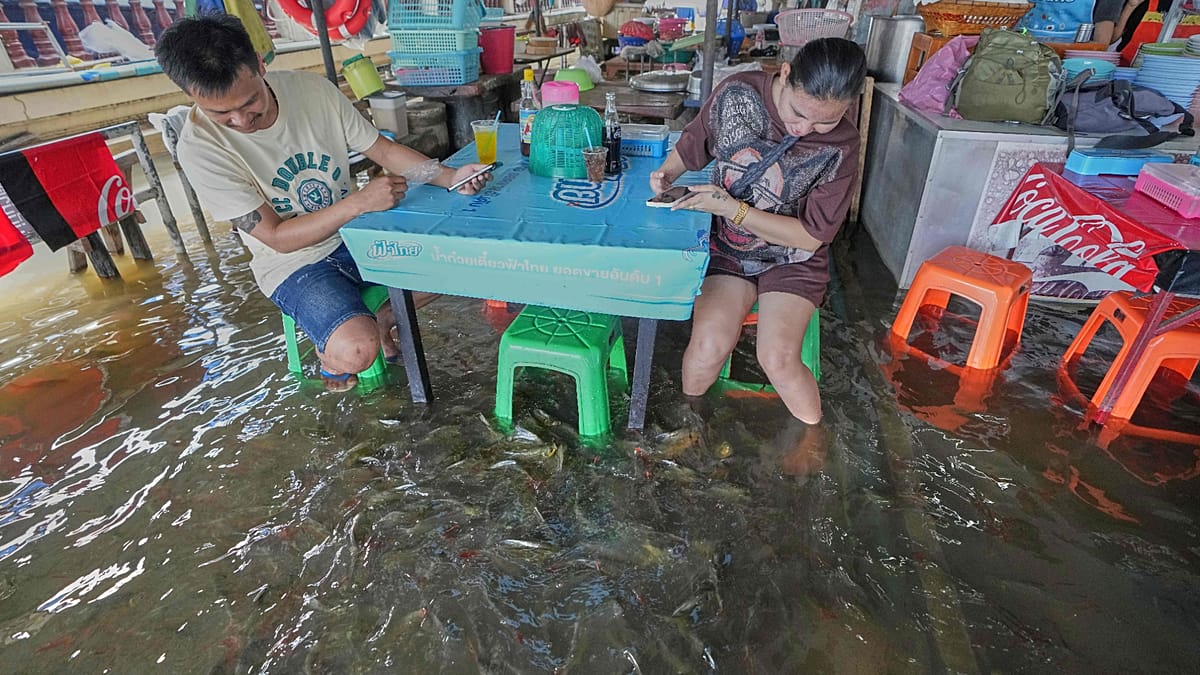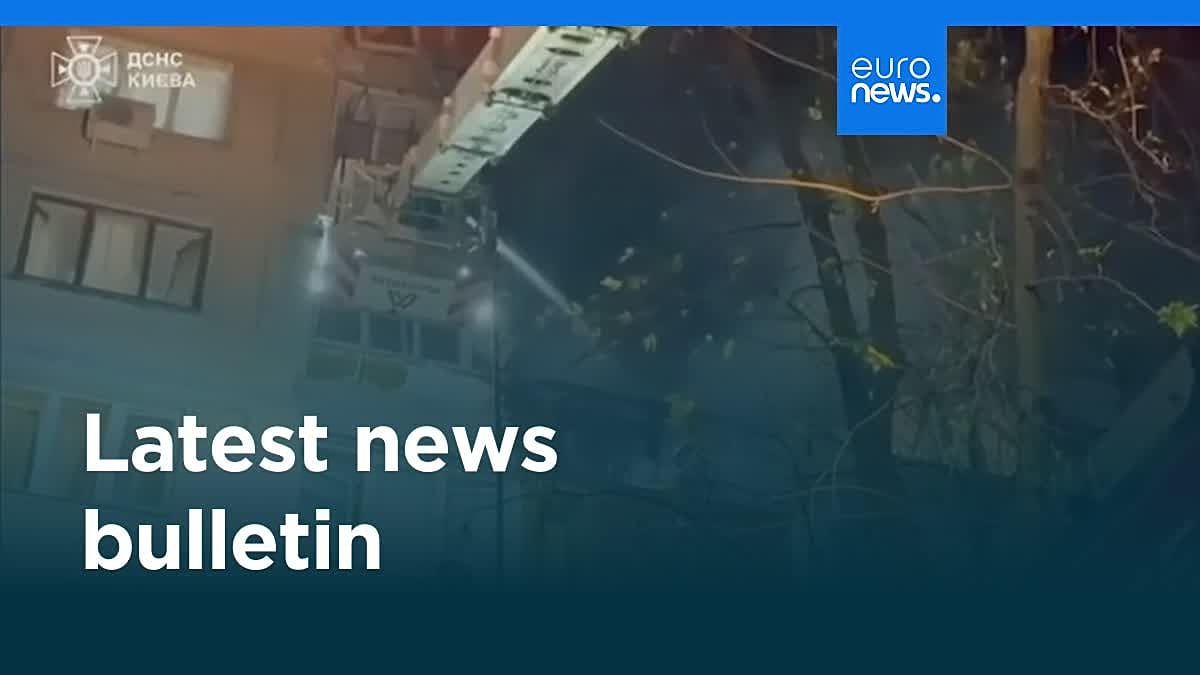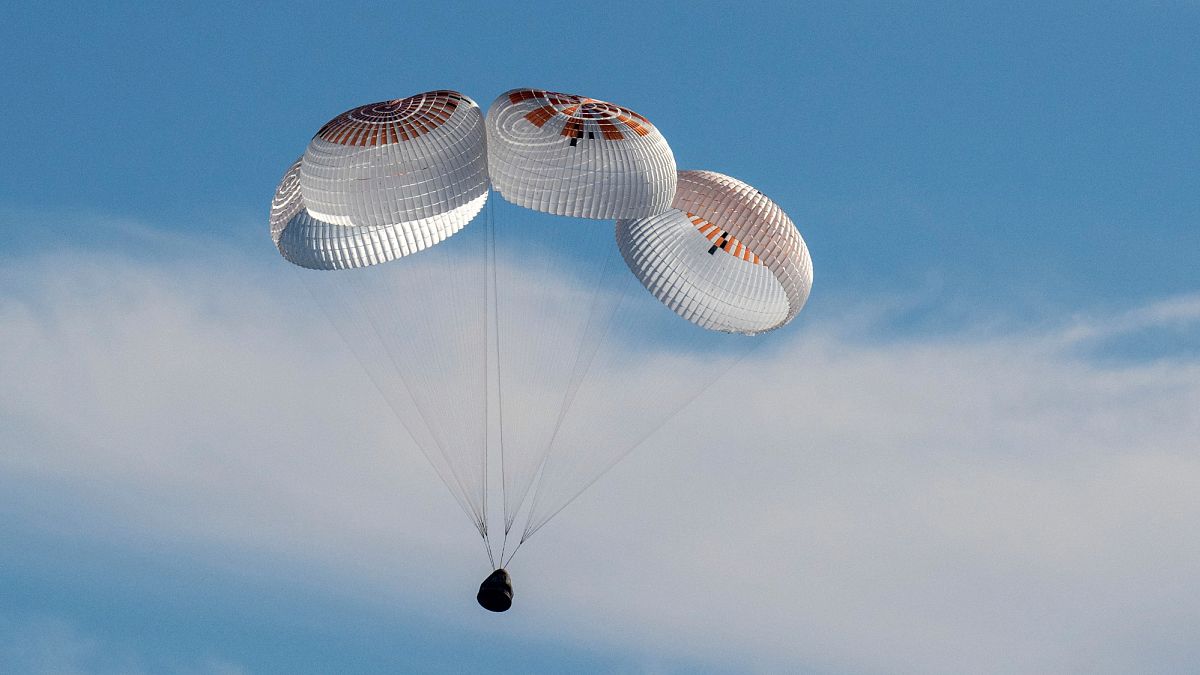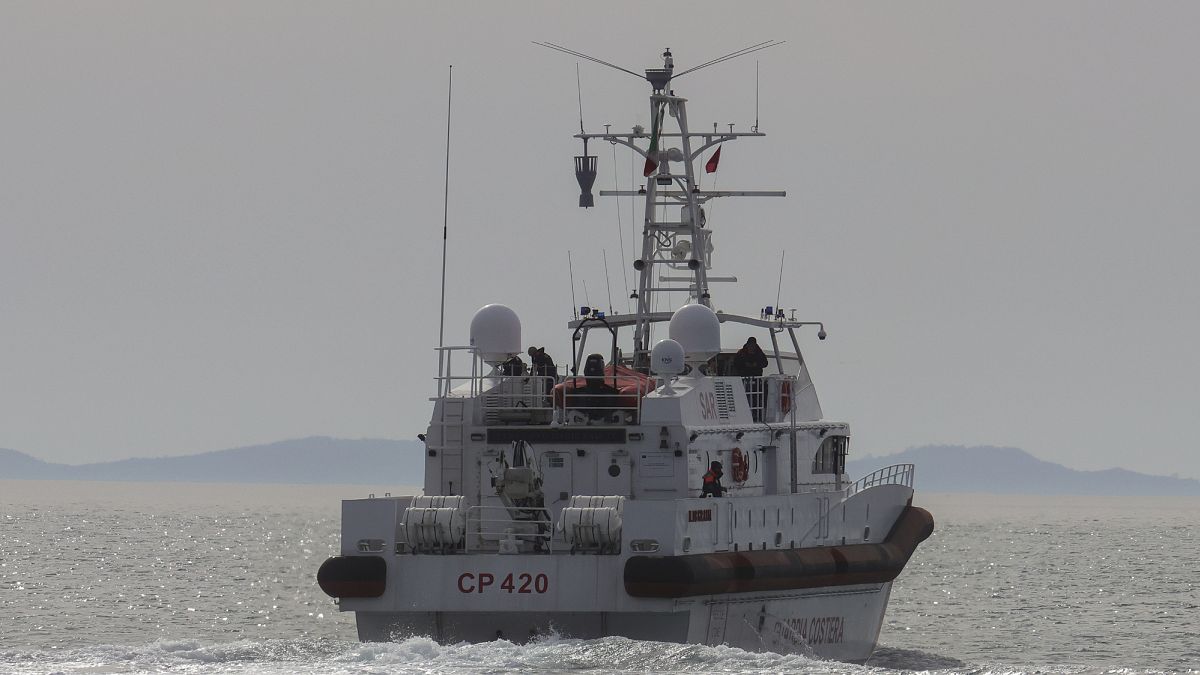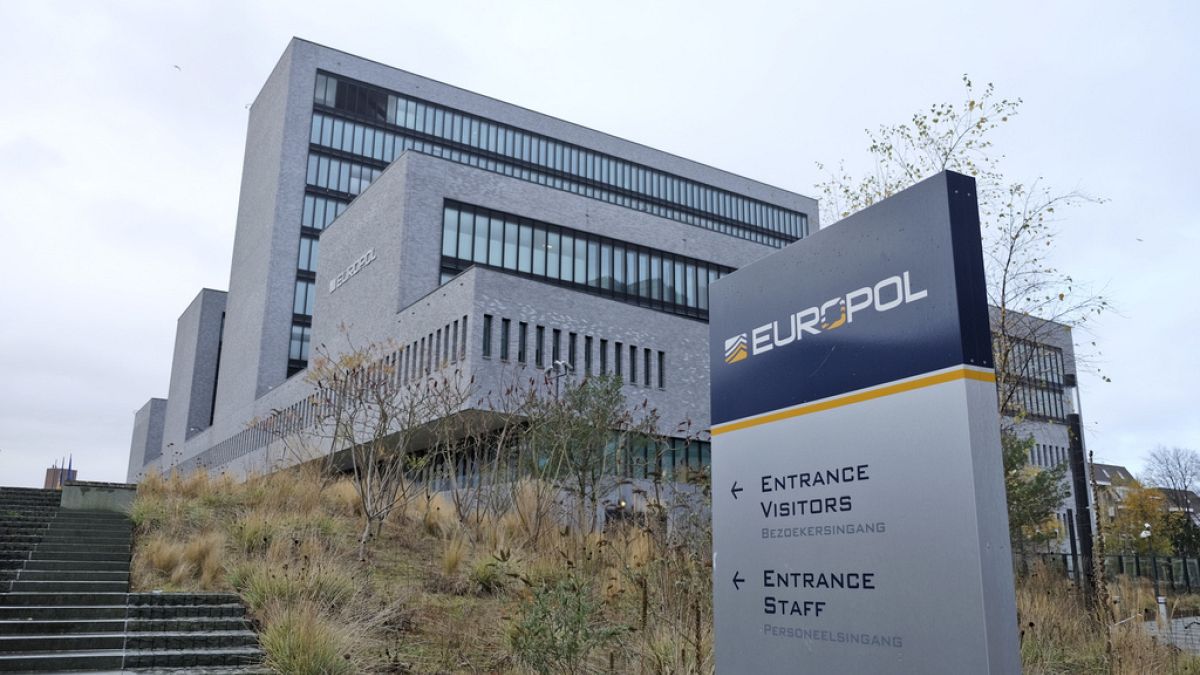EU proposes sanctions on Israel as Gaza humanitarian crisis deepens, but member states still split

More than 1,000 people have been killed while trying to access humanitarian aid in Gaza since the end of May, according to the UN — a toll that is fuelling mounting European pressure on Israel over its ongoing blockade and severe aid restrictions.
EU considers sanctions on research cooperation
In response, the European Commission on Monday proposed suspending Israel’s participation in parts of Horizon Europe, the EU’s key funding programme for research and innovation.
“While Israel has announced a daily humanitarian pause in Gaza fighting and has met some of its commitments under the common understanding on humanitarian aid and access, the situation remains severe,” a statement by the Commission read.
The proposed suspension would affect Israeli involvement in the Accelerator of the European Innovation Council (EIC), which is a part of Horizon Europe and provides funding for start-ups and small businesses developing dual-use technologies such as cybersecurity, drones, and artificial intelligence.
The Commission cited a recent EU report, which concluded that Israel’s actions in Gaza violate the principle of respect for human rights – a condition embedded in the EU-Israel Association Agreement that underpins their political and economic relations since 2000.
Over 60,000 Palestinians have been killed since the outbreak of the war on Gaza in October 2023, according to the Gaza Health Ministry.
The statement specifically accused Israel of severely restricting the delivery of humanitarian aid to the roughly two million Palestinians living in the sealed-off Gaza Strip in recent months.
The new EU proposal does not require unanimous approval from all member states. A qualified majority – 15 of the 27 member countries representing at least 65 percent of the EU population – would be enough to adopt the measure. However, during talks in Brussels on Tuesday among the bloc’s permanent representatives, no agreement was reached on launching the formal decision-making process, as countries including Germany called for more analysis and time to assess the situation on the ground, according to diplomats.
The Israeli Foreign Ministry quickly condemned the recommendation as “mistaken, regrettable, and unjustified”. It warned that sanctioning Israel while it is engaged in a fight against Hamas – following the militant group’s attack on Israel on October 7, 2023 that killed around 1,200 people and took more than 250 people hostage – “only serves to strengthen” Hamas.
Israel said it would work to block the measure from being adopted.
Warnings of famine in Gaza
The EU statement comes amid increasing concerns from humanitarian agencies and governments alike.
At the monthly meeting of the EU’s Foreign Affairs Council in mid-July, Bulgarian Foreign Minister Georg Georgiev stressed that in view of the critical humanitarian situation in Gaza, the country considered it imperative to open all control check points to ensure humanitarian access for the civilian population.
The UN-backed Integrated Food Security Phase Classification (IPC) warned in a report on Tuesday that “the worst-case scenario of famine is currently playing out in the Gaza Strip”.
According to the organisation, “mounting evidence shows that widespread starvation, malnutrition, and disease are driving a rise in hunger-related deaths”.
Over 20,000 children have been admitted for treatment for acute malnutrition between April and mid-July in Gaza, with more than 3,000 severely malnourished, according to the IPC.
It adds that the report does not count as a formal classification of famine but it will carry out a new analysis “without delay”.
“This is unlike anything we have seen in this century. It reminds us of previous disasters in Ethiopia or Biafra in the past century,” said the UN’s World Food Programme emergency director Ross Smith, insisting that “we need urgent action now”.
Some aid has been allowed into Gaza in recent days in the form of air drops and via trucks. However, humanitarian groups say it is nowhere near the amount needed. Israel rejects accusations that it is deliberately starving Gazans.
Divided EU: Some member states resist action
Despite growing concern, EU member states remain divided on how to respond.
Several countries, including Germany, Austria, Hungary, Bulgaria and the Czech Republic, have repeatedly voiced opposition to sanctioning Israel.
“We support Israel. We seek to ensure that all resolutions concerning the situation in Gaza are balanced,” Czech Prime Minister Petr Fiala told reporters last Wednesday. “But this does not mean that our support is unconditional and that we support every step the Israeli government takes.”
Hungarian Prime Minister Viktor Orbán has remained one of Israel’s strongest allies in Europe. In April, he hosted Prime Minister Benjamin Netanyahu in Budapest, despite an active International Criminal Court (ICC) arrest warrant against the Israeli premier for crimes against humanity. At the EU level Hungary is against any sanction towards Israel, even the ones against violent settlers that the other 26 member states had previously agreed to.
Germany is another strong ally and has so far taken no action against Israel. However, it has been under pressure to respond to the deteriorating humanitarian conditions.
German Chancellor Friedrich Merz said the government’s security cabinet discussed options to increase pressure on Israel to improve the dire situation in the Gaza Strip.
“We reserve the right to take such steps,” Merz said, adding that no decisions would be made until after Foreign Minister Johann Wadephul’s trip to the Middle East on Thursday.
Options on the table include a halt to arms exports and even suspension of the EU-Israel Association Agreement, though decisions on weapons exports fall to Germany’s secretive Federal Security Council.
France, Netherlands, and others take independent action
While EU-wide consensus remains elusive, some countries have been taking independent action.
France will recognise a Palestinian state at the UN General Assembly in September, President Emmanuel Macron announced last Thursday.
Including France, Palestinian statehood is now recognised by 142 countries, according to an AFP tally, though Israel and the United States strongly oppose recognition.
In Europe, Ireland, Norway, Slovenia and Spain had previously taken this step following the outbreak of the Gaza conflict. Sweden, Poland, Slovakia, Hungary, Romania, Bulgaria and Cyprus had already recognised Palestinian statehood, some as far back as 1988.
France is co-chairing a conference on a two-state solution alongside Saudi Arabia in New York this week. French Foreign Minister Jean-Noël Barrot said in a speech that the move to recognise the Palestinian state and advocate for a two-state solution was a rejection that the “war camp is winning over the peace camp” and a rejection of Hamas’ contestation of Israel’s right to exist.
He added: “It is also a rejection of allowing the extremists in Israel to say that the Palestinians have no right to exist.”
The UK also announced on Tuesday that it would follow suit in September unless there is a ceasefire and Israel commits to a two-state solution.
Italy’s Deputy Premier and Foreign Minister Antonio Tajani said last week that Italy is not yet ready to follow suit.
The minister also reiterated Italy’s condemnation of Israel’s strikes on Gaza and its restrictions on the entry of aid into the enclave, and again called for a ceasefire in the war against Hamas. “We can no longer accept carnage and famine,” Tajani said.
The Spanish government has been one of the most critical of Israel. It welcomes the European Commission’s proposal to partially suspend scientific cooperation with Israel but believes that the EU should go further in its response to the human rights violations taking place in the Gaza Strip and suspend the Association Agreement with the country.
Some countries have also started putting sanctions on Israel without the EU.
The Netherlands announced on Monday that it will ban two far-right Israeli ministers, National Security Minister Itamar Ben-Gvir and Finance Minister Bezalel Smotrich, from entering the country and that the Israeli ambassador was summoned.
Prime Minister Dick Schoof said the Netherlands supported the plan to suspend Israeli participation in the Horizon research programme if Brussels concludes that Israel is not complying with its commitments regarding humanitarian aid access to Gaza.
He added that if that’s the case it “will also press for further European measures, for example in the realm of trade”.
The Slovenian Prime Minister Robert Golob echoed his sentiment: “We expect Member States to approve the proposal to partially suspend Israel’s participation in the Horizon Europe programme by a qualified majority. Slovenia will continue to advocate for more decisive measures against the Israeli government.”
In mid-July, the Slovenian government also declared Ben-Gvir and Smotrich personae non gratae, arguing the pair incite violence and grave offences against Palestinians’ human rights with their genocidal statements.
Ireland’s government is also taking action. It is preparing legislation that will ban trade with Israeli settlements in Israeli occupied territories which have been deemed unlawful by the International Court of Justice in an advisory opinion.
The European Commission’s proposal marks one of the most significant attempts yet to hold Israel accountable within the framework of EU agreements. But with member states still deeply split, the fate of the measure — and of broader EU-Israel cooperation — will hinge on whether a qualified majority can be reached.
This article is an enr Key Story. The content is based on news by agencies participating in the enr.




















